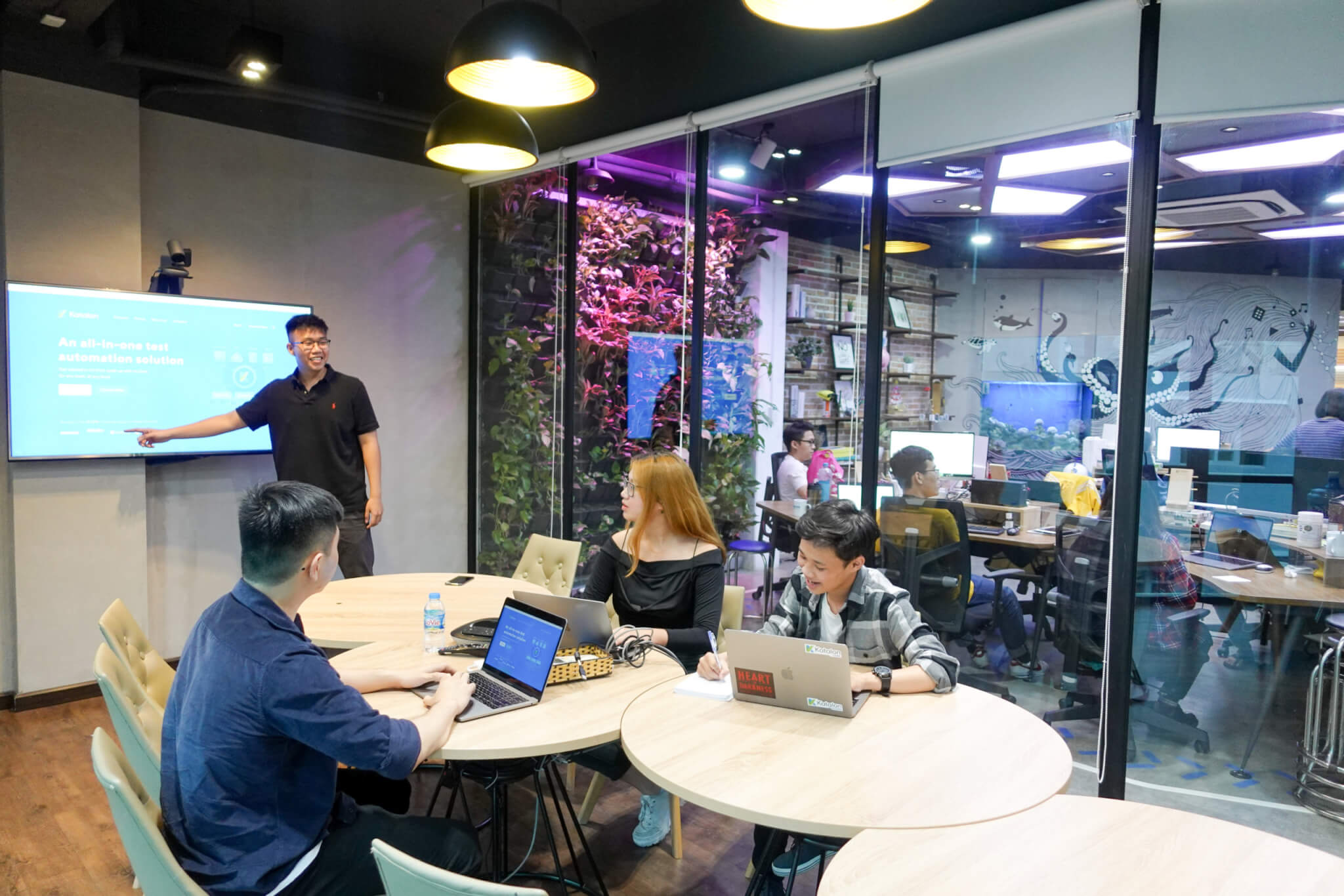Best Practices for Hiring Offshore Software Developers
Hiring offshore software developers provides a range of benefits, including cost efficiency, large talent pools, flexibility, scalability, and filling gaps in your development team.
Whether you are developing mobile applications, building websites, improving your UI/UX, or driving efficiency in your quality assurance and testing process, an offshore development team can enhance your staff in a variety of ways and accelerate your success.
When hiring offshore software engineers as part of your team, there are things you can do to shore up the partnership and ensure a smooth workflow.
Best Practices for Hiring Offshore Software Developers
We’ll discuss best practices for each stage of the partnership process:
- Preparing your organization
- Setting the partnership up for success
- Defining the new model for product development
- Managing a steady-state relationship
- Ensuring long-term success
Let’s take a look at how these best practices help you build a robust product development team when you hire offshore developers:
Preparing Your Organization

The work culture in every organization is a little different. When you are adding an outsourced resource such as an offshore software development team, you need to make sure your in-house team members understand the reasons behind the decision and how it affects them.
This demands transparency. It may be natural for some to worry about their jobs and careers. For example, they may think you are outsourcing so you can eliminate positions. Others may worry it diminishes their value to the organization. Some team members may feel that offshoring limits their ability to grow and enhance their skills.
It’s crucial that you set the tone by defining and communicating the logic behind your decision and how it impacts the team. If this is your first time hiring an offshore software team, you should have unified executive-level support for the decision and dialogue with your team.
Consider an internal kick-off meeting to answer questions, establish ground rules, and promote engagement.
As your project rolls out, look for those within your organization that embrace the process as a partnership. They can become your change champions and help soften any concerns for other in-house team members.
Setting the Partnership Up for Success

For both your in-house team and your offshore development team, you want to start the relationship off right. Here are a few ways that can accelerate the process.
Create Time for Knowledge Sharing
Make sure your team has enough time to transfer knowledge successfully and build strong vendor relationships with your software engineers. Remember, they may be in Eastern Europe, Latin America, or Asia, and in a different time zone.
Get Documentation Updated
Before you start to work with remote developers, make sure your documentation and processes are as up-to-date as possible. When you hire offshore software developers, they can reverse engineer products, but the more documentation you can provide, the less time it will take in the application development process.
Establish Communications and Processes
When you are doing any kind of project management with a remote team, you must establish your communication and collaboration protocols. Whether you choose to use Slack, Trello, Asana, Basecamp, or another platform, you need to ensure everyone on the web development or custom software development team understands the overall project workflow.
You will also want a robust onboarding process to train the team on products, tech stacks, and processes.
Define the Scope of Work
When you hire offshore developers or a software development company, you need to clearly define the scope of work to avoid miscommunication or change orders in the future — especially if you hire developers at an hourly rate. While there may be unexpected things that evolve your thinking, the more detailed the scope of work, the more cost-efficient you will be.
Define the New Model for Product Development

You also need to define responsibilities across both your offshore development team and your in-house team members. Even with dedicated teams from your partners, there will still be the potential for duplication of effort or things that get lost in the shuffle.
As part of your digital transformation to offshore software development services, you need to make sure everyone knows their role, deliverables, timelines, and accountability.
Besides setting up your structure for communication, you also need to ensure your in-house team members know your expectations and the parameters. For example, remote work may be conducted outside of normal business hours. This may require occasional communication outside of the typical workday.
There may be other changes to how communication happens, such as:
- More frequent recording of decisions and conversations (i.e. more formal communication)
- Higher visibility into online availability and tracking
- More rigorous attention to process and documentation
- Shift from in-person or stand-up meetings to virtual or remote formats
Managing a Steady State Relationship

As your offshore and in-house teams start working together, your goal is to create a cohesive partnership that breaks down the barriers between “us” and “them.” You want to build a relationship where the offshore team becomes an extension of your team rather than feeling like a replacement or a vendor.
You may have to work a bit to get past cultural or language barriers and time zone challenges depending on your outsourcing destinations.
Right from the beginning, ensure everyone working in your development centers has a clear expectation around partnership objectives, such as KPIs, end goals, and a top-notch user experience.
Best practices to create a high-quality working relationship include:
- Treat your remote team as a partner and not a vendor
- Synchronize all teams on structure and procedures
- Establish goals for quality, velocity, and predictability
- Maintain clear lines of communication
- Take time for video meetings or calls and don’t just rely on email and messaging
Ensuring Long-Term Success

The cost of hiring team members can be high, which is one of the reasons many organizations turn to offshore software developers in the first place — especially when there’s a defined project or the team lacks expertise and knowledge in specific areas. Offshore teams help you grow your talent pool without long-term payroll costs.
There’s also a cost if you have to switch vendors or find different offshore partners. The best solution is to adopt a mindset of creating a long-term partnership to avoid these headaches. Establish a healthy relationship from the very beginning with buy-in from the executive team.
Any challenges, risks, or concerns from any team member should be addressed promptly with detailed feedback to enable teams to resolve them and improve.
Whatever you do, always make sure that you consistently align progress towards meeting business objectives and KPIs for the project and the partnership.
Long-term success starts with hiring the right partners. KMS Technology can help.
Looking to Hire Offshore Software Developers?

KMS Technology is headquartered in Atlanta and supplies offshore software development services to companies across the globe. Whether you want to add development teams or capabilities, improve or modernize existing software, evaluate a software portfolio investment, or run your DevOps more efficiently, KMS can help.
For example, KMS Technology is a trusted offshore partner with access to the top talent in Vietnam, one of the fastest-growing tech outsourcing destinations in the world. KMS has more than 1,000 resources in Vietnam, supports 18 technical languages, and has been recognized for seven years as one of Vietnam’s leading software companies.
KMS brings you the benefits of an outsourcing provider at the forefront of technology coupled with the personal touchpoint of an Atlanta-based leadership team. Let us help you maximize your success while minimizing your development costs. To discuss your projects, contact KMS Technology today, your trusted offshore partner.








